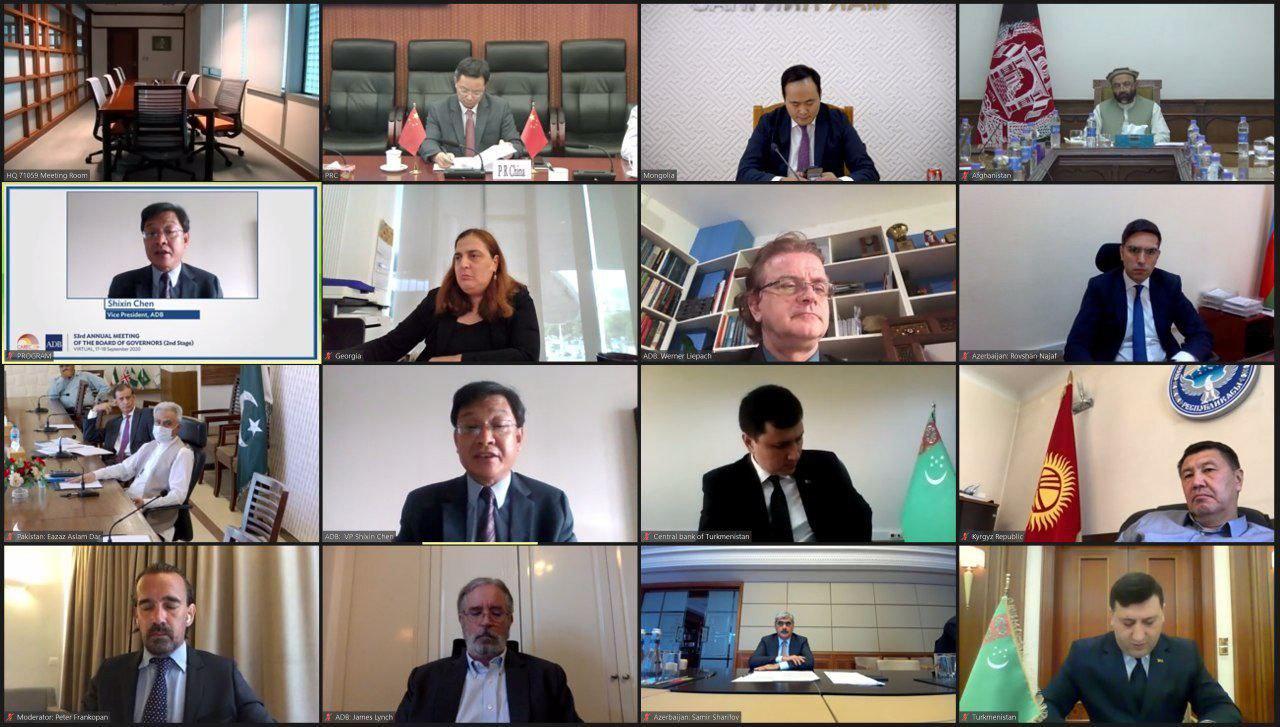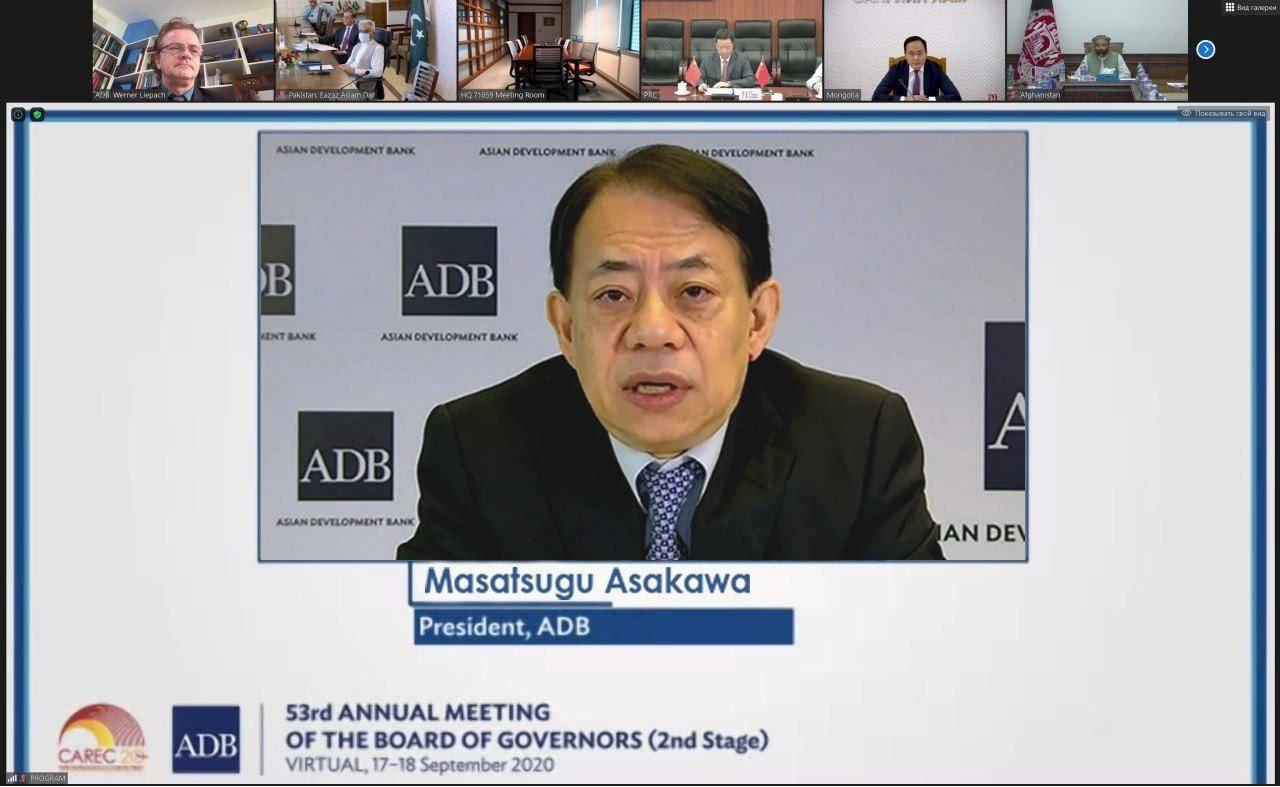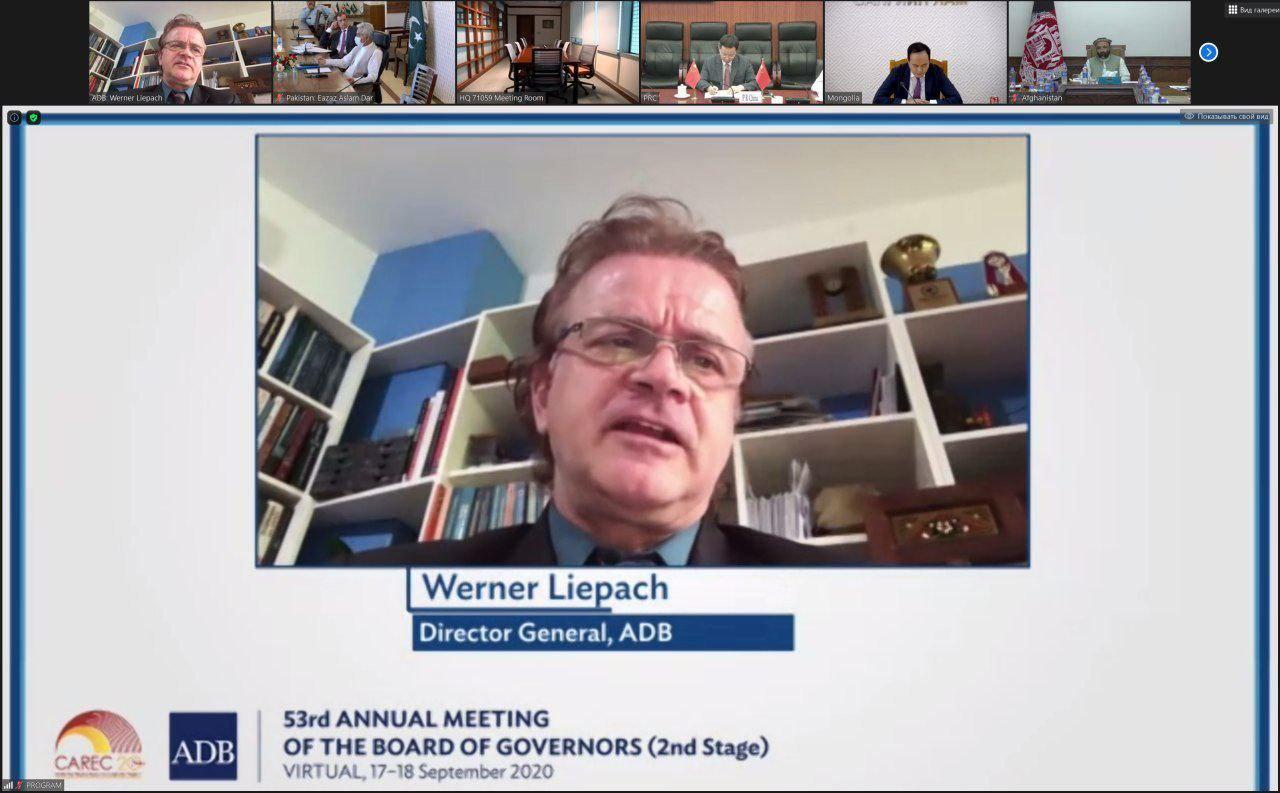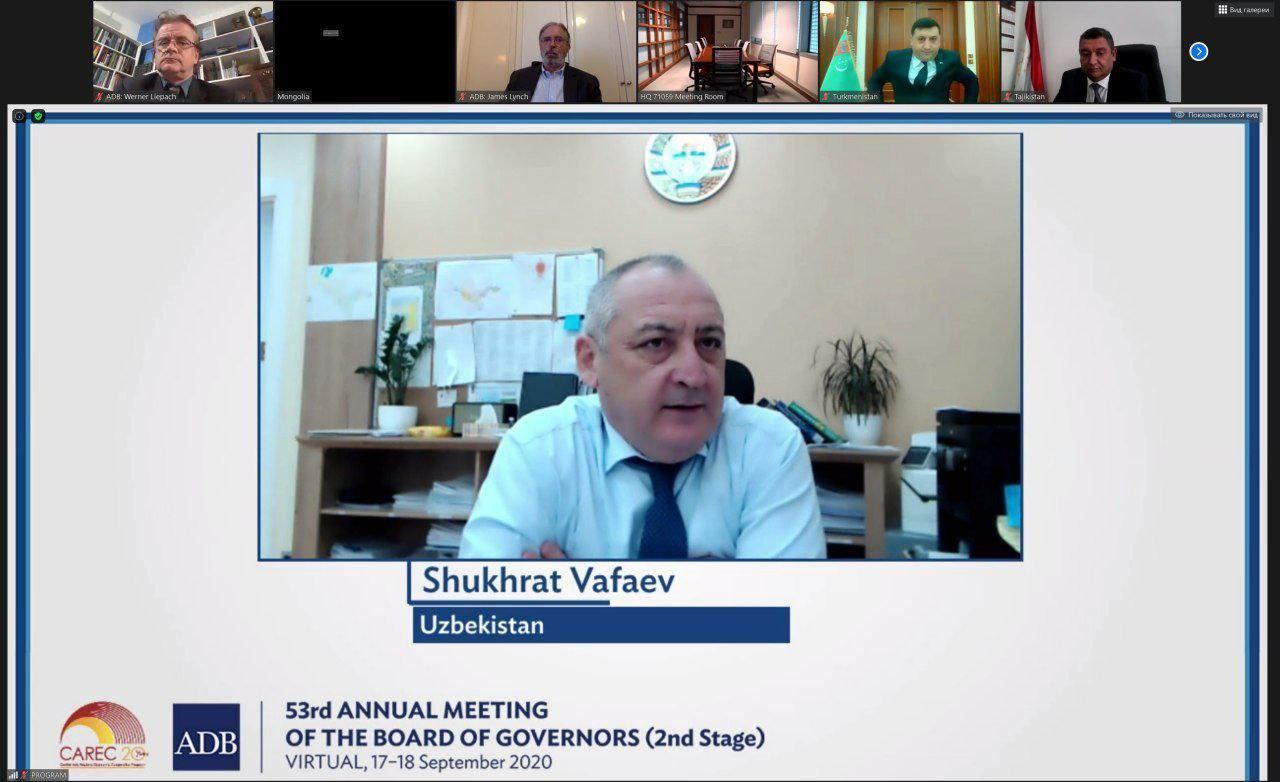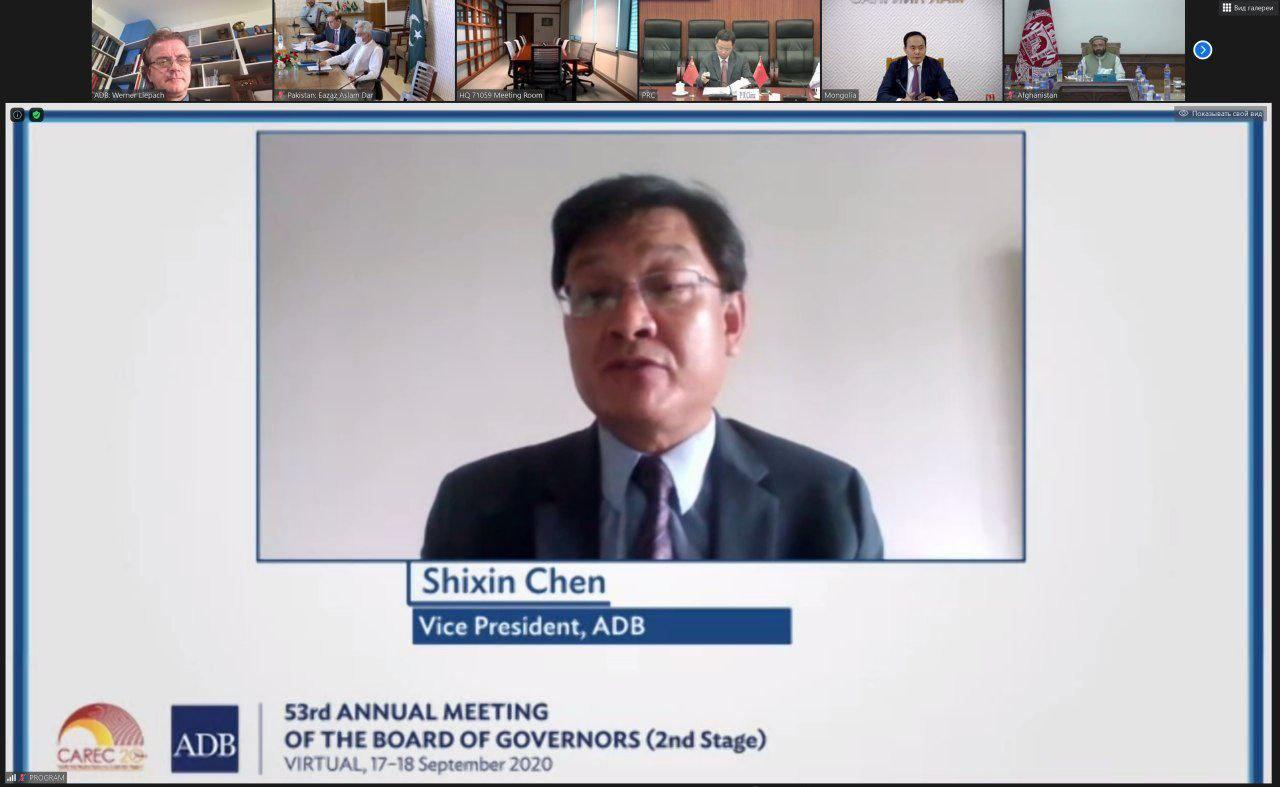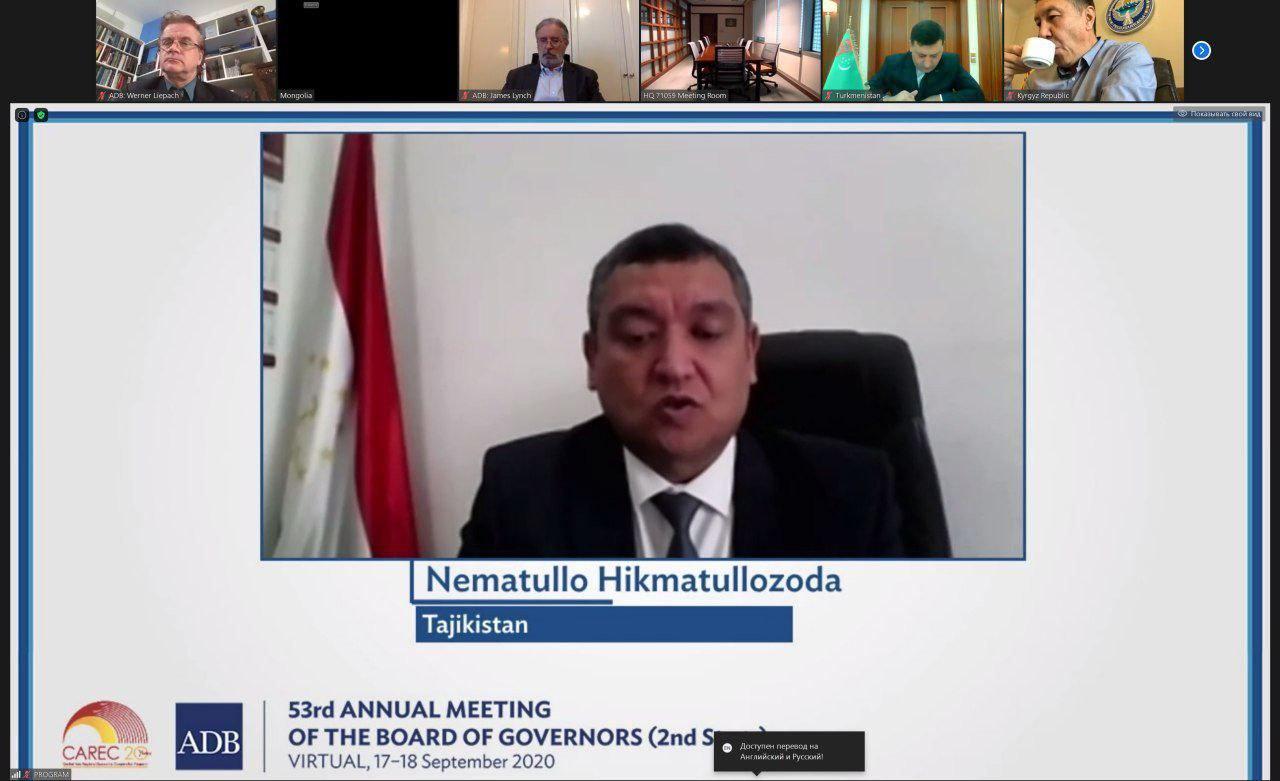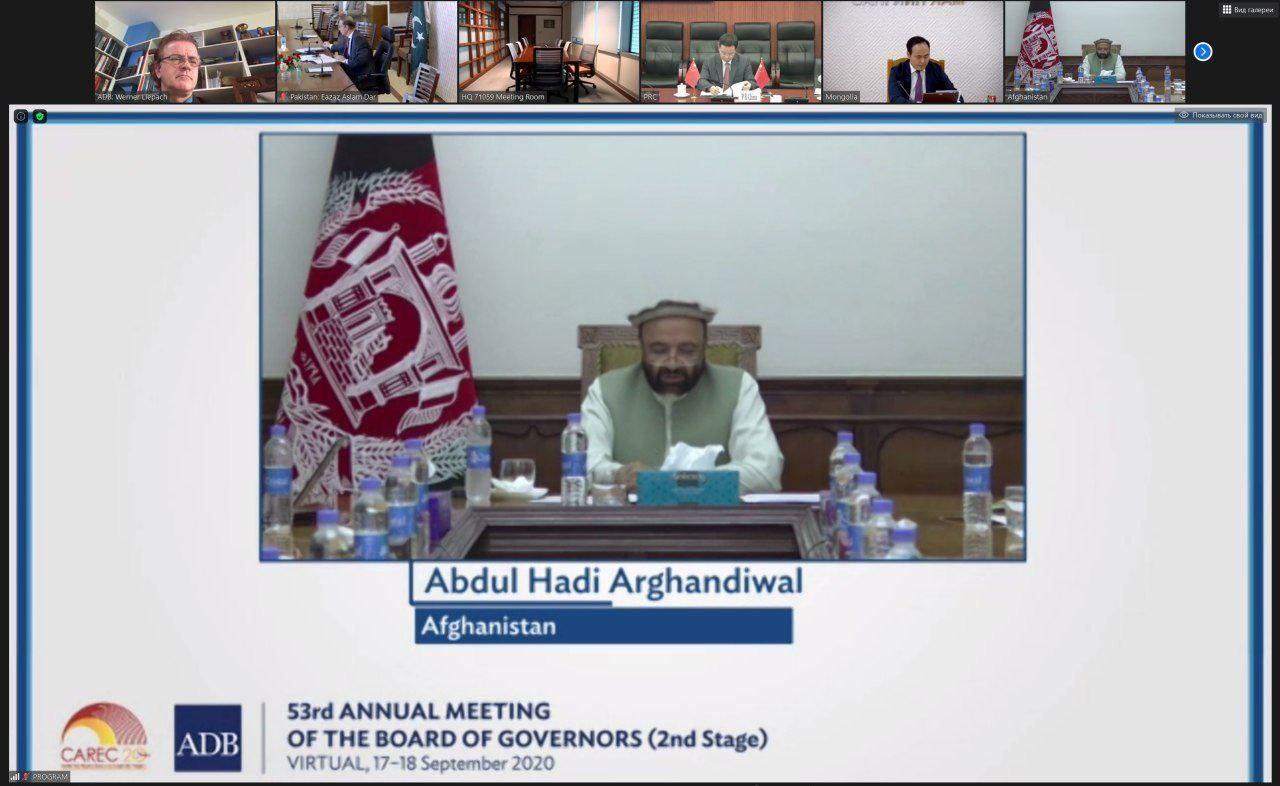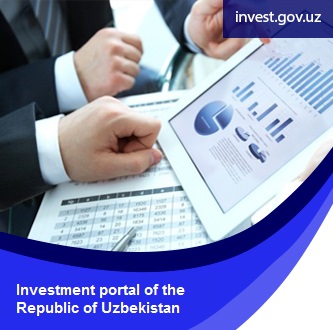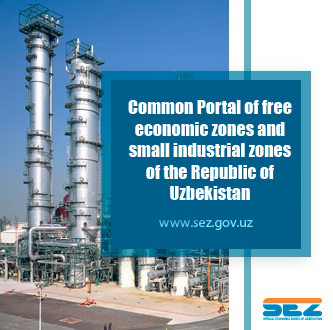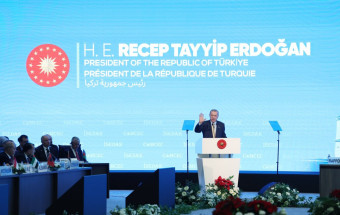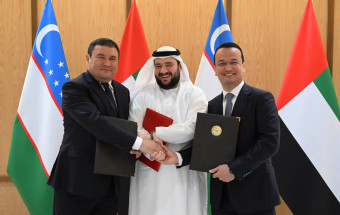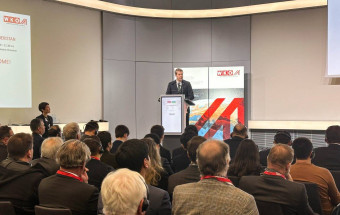ADB Annual Meeting and CAREC High-level Session: Regional Cooperation in Addressing the Economic Impact of the Pandemic
On September 17-18 this year, there was the Annual Meeting of the Board of Governors of the Asian Development Bank (ADB) via video-conferencing. This included the High-Level Session of the Central Asia Regional Economic Cooperation (CAREC) dedicated to regional cooperation during the pandemic and further steps to eliminate its economic effects.
During the Annual Meeting, the Governors of ADB member countries reviewed the reports of the Bank's procedural Committee and the results of ADB's financial activities for 2019. According to reports, the ADB allocated USD 21.6 billion in credit lines and grants to finance projects approved, which enabled early meeting of goals set in 2015 to double funding to combat climate change to USD 6 billion, i.e. one year ahead of schedule. Moreover, the participants approved separate Cooperation Programs with Uzbekistan, Armenia, Azerbaijan, Bhutan, Cambodia, Fiji, Georgia and Nepal.
During business session, the members of the Board of Governors approved the ADB budget for 2020, the candidatures of the Chairman and Deputy Chairman of the ADB Board of Governors for 2020-2021, as well as the place and time of the 56th ADB Annual Meeting for 2023 as Tbilisi (Georgia) by voting.
The agenda also included the consideration of further assistance by the ADB to developing member countries in eliminating the consequences of the coronavirus pandemic. It was noted, that the ADB allocated USD 9.3 billion for these purposes in the past 6 months.
'The COVID-19 pandemic had a serious impact on developing member countries and impacted the global economy in an unprecedented way,' - said the ADB President Masatsugu Asakawa. 'We spend our all possible resources to fight the pandemic by quick responding in order to ensure positive financial flow and help the region recover as quickly as possible.'
For reference: The Asian Development Bank was founded in 1966. Its main task is to stimulate economic growth in Asian countries through the financial and technical assistance. Currently, the Bank involved in the implementation and work out of social and infrastructural investment projects in Uzbekistan in health care, education, agriculture and water management, water supply and sewerage, construction and reconstruction of highways, electrification of railways, comprehensive development of basic infrastructure in the regions, etc.
The CAREC High-Level Session held during the ADB Annual Meeting included review of pressing concerns on countering the global pandemic. Representatives of the countries participating in the program discussed the latest changes in the region, measures taken by each country to combat COVID-19, as well as further joint steps to resume international cooperation in the post-pandemic period.
Following the discussion, the participants of the CAREC session unanimously reaffirmed their commitment to further multifaceted international cooperation to develop effective solutions in economic policy in the post-crisis period. They also disclosed common position on the need to continue funding of the global health system in order to create the resources necessary for high-quality and timely medical services to patients infected with coronavirus, and to reduce the spread of infection. It was decided to develop a joint action plan to expand economic and trade interaction and improve infrastructure between countries within the CAREC platform, which, in turn, will significantly contribute to further strengthening of the economic well-being of Asian countries.
For reference: The Central Asia Regional Economic Cooperation Development Program (CAREC) was launched in 1997 as initiated by the ADB. The Program aims at economic development of the Central Asian countries by expanding regional and multilateral cooperation in priority areas.
Currently, 11 countries of the region participate in CAREC - Uzbekistan, China, Azerbaijan, Kazakhstan, Kyrgyzstan, Mongolia, Tajikistan, Afghanistan (since 2005), Pakistan, Turkmenistan (since 2010), and Georgia (since 2016), as well as international funders: ADB, World Bank, IMF, EBRD, IDB, and UNDP.


